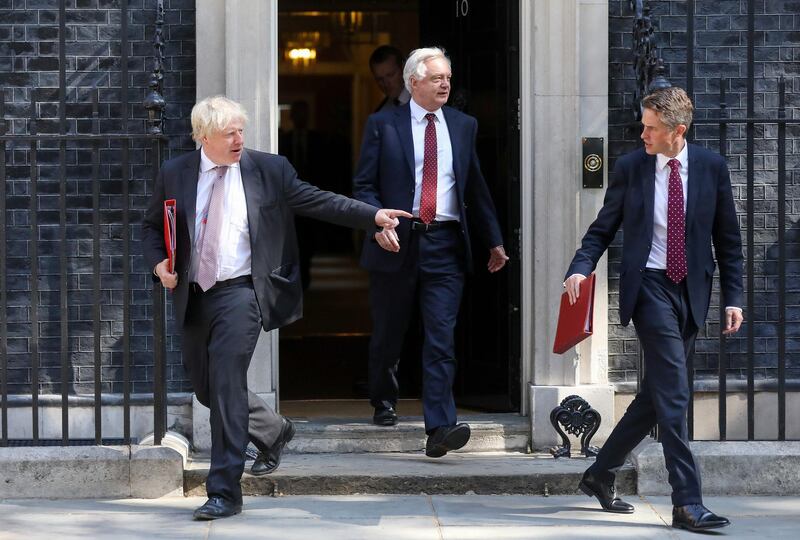It was Boris Johnson, the now departed British foreign secretary, who coined the post-Brexit mantra that Britain is leaving the EU, not leaving Europe.
With that in mind, Mr Johnson's foreign office had organised a summit of Western Balkan countries on Monday to show that London would remain attuned to the concerns of the region and be a strong player in Balkan politics.
A lunch with the foreign secretary was billed but that came and went with no sign of Mr Johnson. A mid-afternoon press conference similarly fell apart. It came as no surprise when Mr Johnson was out of his job before the evening news.
The manner of his going was no surprise as Mr Johnson has proved an erratic foreign secretary whose tenure has coincided with a drifting British response to the 2016 referendum.
For prime minister Theresa May, the woman who appointed Mr Johnson, it was a moment that was always just around the corner. As was the decision the night before by David Davis, head of the Department for Exiting the EU, to step down. Mr Davis had threatened his resignation five times before making good on his word.
With just 263 days left until the country will exit the EU, the ruling Conservative Party can fudge the Brexit issue no longer.
The prime minister has finally decided that the realities of economic gravity are such that Britain must seek deep trading rights with its closest neighbours. This means that Britain must not only adopt the European rulebook but is precluded from doing broad free trade deals with the United States and elsewhere.
Senior cabinet minister Jeremy Hunt put the choice on Monday between falling into Brexit paralysis or to seek a "now-or-never Brexit".
The shortage of time on the clock is Mrs May's best argument against an internal challenge. It is also an opening for a fresh start with Brussels.
Mr Davis had a troubled tenure as the man appointed to oversee the country's exit from a 46-year membership of the EU. One of his first missteps was to order Ollie Robbins, the civil servant who became Mrs May's closest lieutenant on Europe, to threaten to block the Channel Tunnel with concrete if London did not get its way. He rarely visited Europe for discussions with his opposite number, Michel Barnier. The two held only four hours of face-to-face discussions in 2018.
If Mrs May can hold the line, she can tell Brussels she can cut a credible deal in the autumn.
The alternative is a disorderly exit that would inflict a strategic blow to a European continent already reeling from internal and external shocks.






